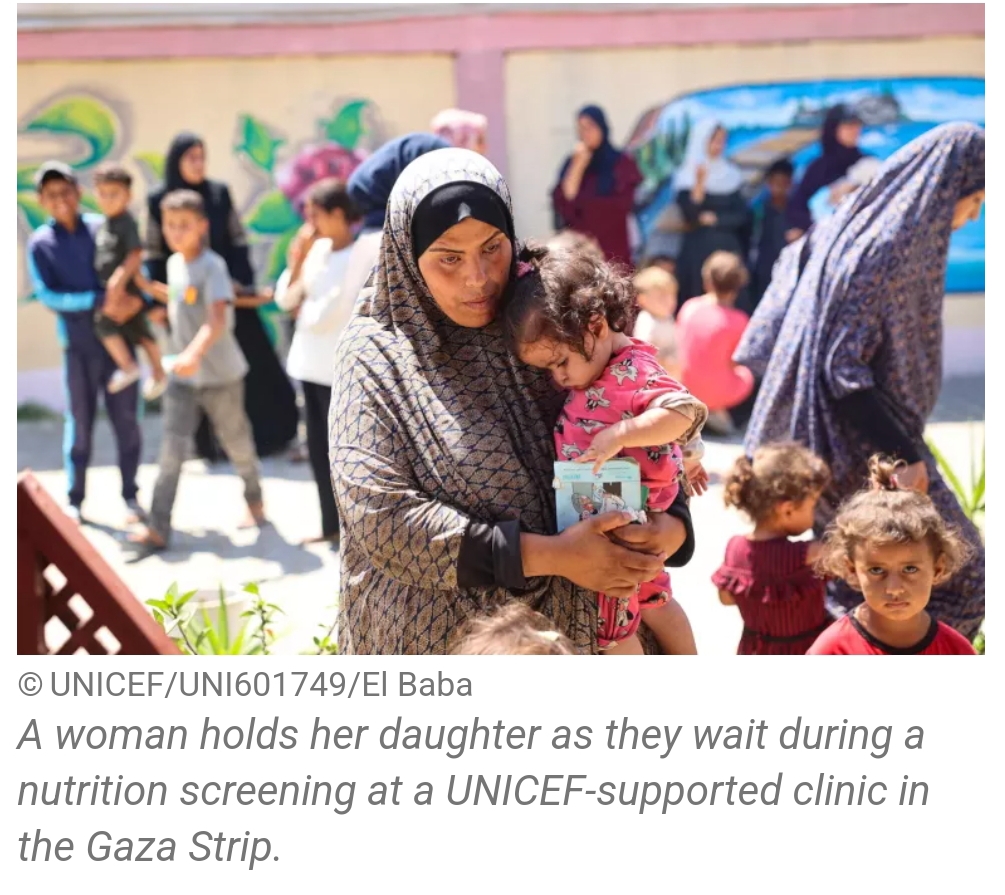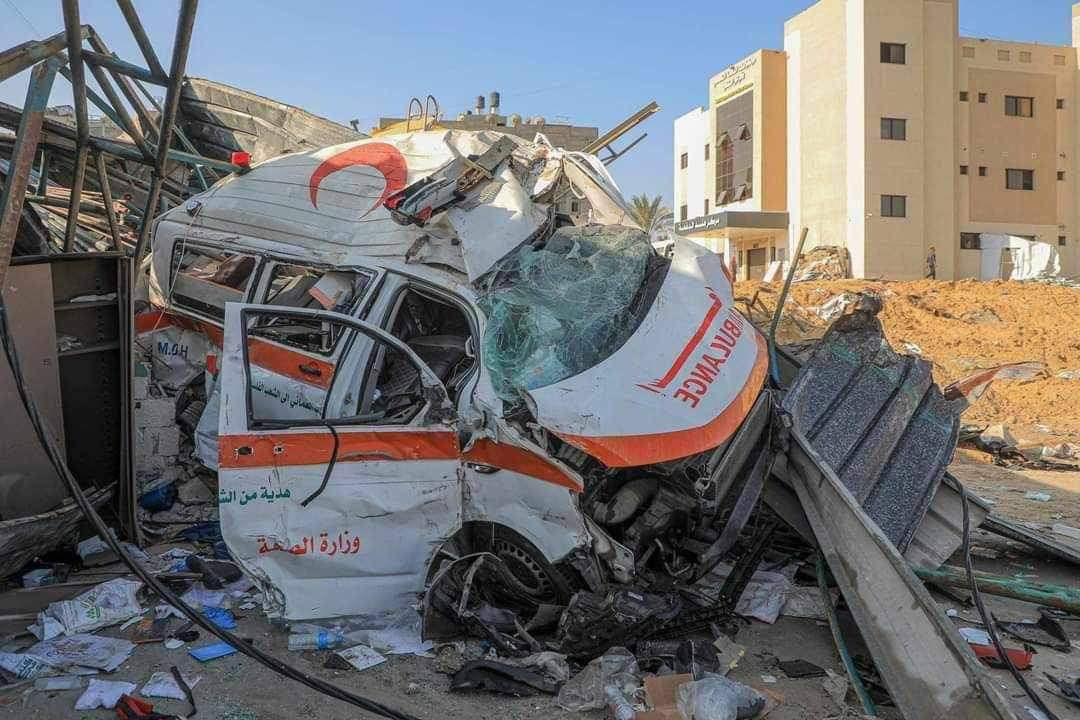Looming Famine Threatens Children and Mothers in Gaza as Aid Blockade Enters Third Month.
Gaza Strip:
The humanitarian crisis in the Gaza Strip has reached a critical tipping point, with United Nations agencies warning of a looming famine that could devastate the region’s most vulnerable — its children and mothers.
According to a joint press release issued on 12 May by the United Nations Children’s Fund (UNICEF) and the World Food Programme (WFP), approximately 470,000 people in Gaza are now experiencing catastrophic levels of hunger, classified as IPC Phase 5 — the highest level of food insecurity. The Integrated Food Security Phase Classification (IPC) snapshot confirms that the entire population of Gaza is currently facing acute food insecurity, marking a grim milestone in the territory’s deepening crisis.
The latest figures paint a stark picture: an estimated 71,000 children and over 17,000 mothers are at immediate risk of acute malnutrition and require urgent medical and nutritional intervention. At the start of 2025, that number stood at 60,000 children — a dramatic and deadly rise in just a few months.
“Families in Gaza are starving while the food they need is sitting at the border,” said Cindy McCain, Executive Director of the UN World Food Programme. “We can’t get it to them because of the renewed conflict and the total ban on humanitarian aid imposed in early March. If we wait until after a famine is confirmed, it will already be too late for many people.”
The resurgence of military operations, a complete blockade on humanitarian access since 2 March, and the destruction of essential infrastructure have reversed the modest humanitarian gains made during a ceasefire earlier this year. The IPC warns that without immediate access to food, water, and medical supplies, mortality rates will escalate and famine will become a grim certainty in parts of Gaza.
UNICEF’s Executive Director Catherine Russell echoed these concerns, emphasizing that famine is not a sudden event but the result of prolonged deprivation. “The risk of famine does not arrive suddenly. It unfolds in places where access to food is blocked, where health systems are decimated, and where children are left without the bare minimum to survive,” Russell said. “We have repeatedly warned of this trajectory and call again on all parties to prevent a catastrophe.”
The consequences of the prolonged border closure are devastating. Food prices have soared to unaffordable levels, with whatever remains in local markets now out of reach for most families. At the same time, more than 116,000 metric tons of food assistance — enough to feed a million people for four months — are stalled just outside Gaza’s borders, waiting for clearance. In addition, hundreds of pallets of therapeutic nutrition treatments for malnourished children are also ready for distribution.
Both UNICEF and WFP emphasized their readiness to resume large-scale aid delivery as soon as access is granted. However, WFP reported it exhausted its food stocks for hot meal kitchens on 25 April, while its 25 aid-supported bakeries ceased operations weeks earlier due to a lack of wheat flour and cooking fuel. Food parcel distribution has also come to a halt.
UNICEF continues to deliver water and basic nutrition services where possible but noted that its supplies to prevent malnutrition have run out. Stocks of therapeutic food for treating children with acute malnutrition are also critically low.
As the crisis escalates, the two UN agencies are urging all parties involved to prioritize humanitarian needs and uphold their obligations under international law by reopening border crossings immediately for the safe and impartial delivery of aid.
“The international community must act now — not later — to prevent a famine,” said the statement. “Children cannot wait.”



